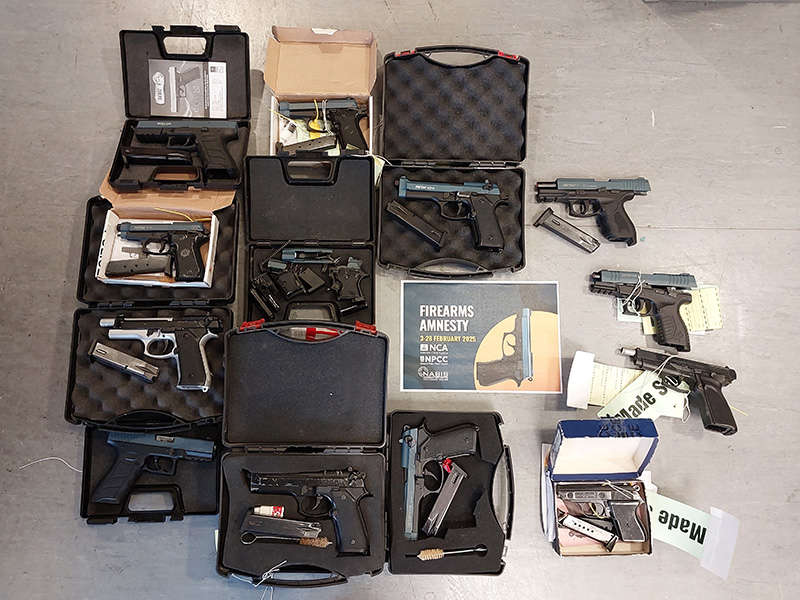
Derbyshire Police and Crime Commissioner Angelique Foster has welcomed a new progress report evidencing the positive impact her investment in rural crime investigations has had on community safety.
The Commissioner received a detailed update from the force on how it is meeting her Police and Crime Plan priority to tackle rural crime in her latest Performance Scrutiny Meeting.
The meetings were introduced by the Commissioner and are held regularly to enable the Commissioner to hold the force to account, promote transparency and review performance to determine if and where further improvements are needed.
Over the past 12 months, the Commissioner has agreed funding to strengthen the force's Rural Crime Team (RCT) as part of her promise to deliver a robust response to rural communities.
Police and Crime Commissioner Angelique Foster said: "People want more proactive policing to protect rural communities and keep their livelihoods safe and I want to make sure as their Commissioner that this happens in Derbyshire.
"My Performance Scrutiny Meetings are one of the ways for me to measure the success of the force in doing this and I am pleased to see the scale of the improvements and progress made so far to deliver a stronger service across rural Derbyshire."
In its report to the Commissioner, the force said the RCT comprises one full-time sergeant and seven full-time constables while all officers have been trained as specialist wildlife investigators.
Additionally, 14 other officers in the force have undergone national wildlife crime officer training and the RCT will soon be welcoming Derbyshire's first Rural Crime PCSO, who will play a vital role in helping coordinate work between community and RCT to strengthen engagement and communication, improve information sharing and crime prevention.
The RCT has successfully investigated several high-profile cases over the last year including a joint operation with neighbouring forces into the handling of stolen farm equipment and plant which led to the recovery of thousands of pounds worth of farm goods. It also works closely with other regional forces and their RCTs and attends weekly intelligence sharing meetings with cross-border rural crime specialists.
The PCC continued: "Over the past year, I have boosted the funding for rural policing and as a result, Derbyshire Constabulary has more capacity, new technology to detect crime and more training available to ensure those officers called to investigate a rural crime are equipped to do so. This investment has undoubtedly paid off with several successful policing operations, arrests and prosecutions this year.
"However, there is still more to do to increase confidence and crime reporting within our rural communities. I will continue to challenge the Chief Constable and her team for further results. I also am making sure the force has the right resources, tools and support needed to deliver on my plan and provide the standards and services the public deserve."
The report also shows positive progress is being made against the Commissioner's Police and Crime Plan pledge to expand Neighbourhood Watch (NHW). Coverage has grown across rural communities with 1,860 individual Neighbourhood Watch schemes in operation many of which are in rural areas.
Meanwhile, there has been a significant increase in the number of Community Speedwatch groups operating throughout Derbyshire which play a vital role in helping monitor speeding hot spots and educating speeding motorists.
The Commissioner pledged in her Police and Crime Plan to increase proactive speed enforcement across the county and boost the number of Community Speedwatch volunteers. Earlier this year, she launched a Road Safety Grant scheme offering community groups, parish councils and voluntary organisations the chance to bid for a share of £150k to fund the installation of Speed Indicator Devices (SIDs) and other road safety measures such as new Community Speedwatch.
There are now 692 volunteers involved in the scheme and 93 active groups - a large increase on the 25 groups in place in 2019.
The report also detailed the improvements the force has made to encourage the reporting of rural crime including an increased social media presence by the RCT and a direct RCT email inbox. Call centre staff and members of the Crime Resolution Investigation and Management Team have also received training to identify rural crime incidents at the earliest point of contact to ensure the enquiry is allocated to the most appropriate team.

 Derbyshire Police detail extent of blank firing guns and ammunition handed in during amnesty
Derbyshire Police detail extent of blank firing guns and ammunition handed in during amnesty
 May County Council election candidates announced for Erewash
May County Council election candidates announced for Erewash
 County council candidates revealed
County council candidates revealed
 Man charged in connection with robbery in Ilkeston
Man charged in connection with robbery in Ilkeston




